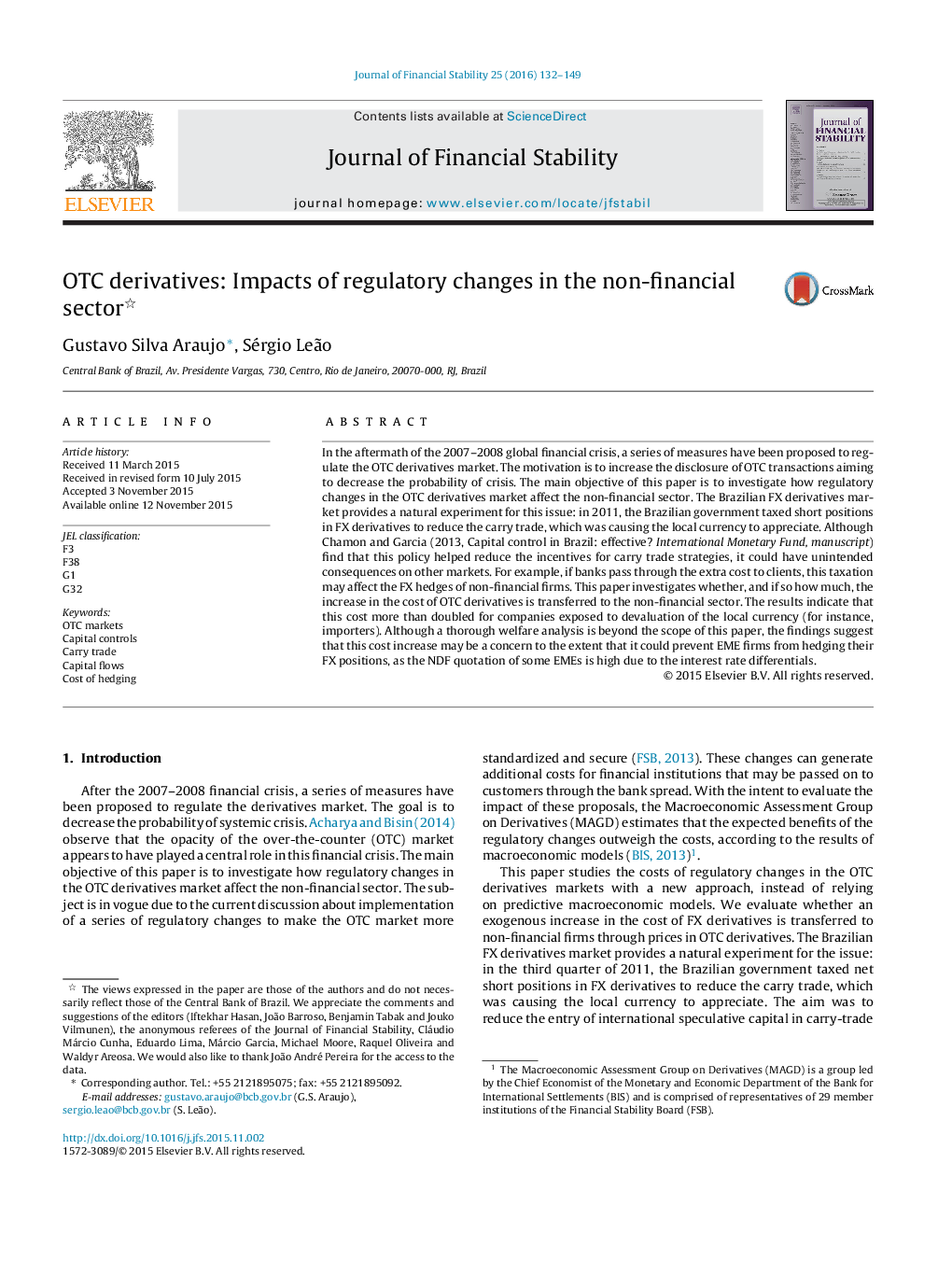| کد مقاله | کد نشریه | سال انتشار | مقاله انگلیسی | نسخه تمام متن |
|---|---|---|---|---|
| 998806 | 1481526 | 2016 | 18 صفحه PDF | دانلود رایگان |
• After the 2007–2008 financial crisis, a series of measures have been proposed to regulate the derivatives market. The motivation is to increase the disclosure of the OTC operations aiming to decrease the probability of crisis.
• This paper studies the costs of regulatory changes in the OTC derivatives markets with a new approach, instead of relying on predictive macroeconomic models. We evaluate whether an exogenous increase in the cost of FX derivatives is transferred to non-financial firms through prices in OTC derivatives.
• The Brazilian FX derivatives market provides a natural experiment for the issue: in 2011 the Brazilian government taxed short positions in FX derivatives to reduce the carry trade, which was causing the local currency to appreciate. The aim was to reduce the entry of international speculative capital in carry-trade operations. However, this taxation may cause unintended outcomes in the real economy.
• Our results show that the cost of hedging in the OTC market more than doubled for non-financial companies exposed to devaluation of the local currency (e.g., importers). For our main sample, the minimum and the maximum values of the cost increase are, respectively 50% and 183%, always statistically significant at 1%.
• As the BRL-USD NDF quotation (and the NDF quotation of other EMEs) is high due to the interest rate differentials, this cost increase can be worrisome to the extent that it could prevent firms from hedging their FX positions.
In the aftermath of the 2007–2008 global financial crisis, a series of measures have been proposed to regulate the OTC derivatives market. The motivation is to increase the disclosure of OTC transactions aiming to decrease the probability of crisis. The main objective of this paper is to investigate how regulatory changes in the OTC derivatives market affect the non-financial sector. The Brazilian FX derivatives market provides a natural experiment for this issue: in 2011, the Brazilian government taxed short positions in FX derivatives to reduce the carry trade, which was causing the local currency to appreciate. Although Chamon and Garcia (2013, Capital control in Brazil: effective? International Monetary Fund, manuscript) find that this policy helped reduce the incentives for carry trade strategies, it could have unintended consequences on other markets. For example, if banks pass through the extra cost to clients, this taxation may affect the FX hedges of non-financial firms. This paper investigates whether, and if so how much, the increase in the cost of OTC derivatives is transferred to the non-financial sector. The results indicate that this cost more than doubled for companies exposed to devaluation of the local currency (for instance, importers). Although a thorough welfare analysis is beyond the scope of this paper, the findings suggest that this cost increase may be a concern to the extent that it could prevent EME firms from hedging their FX positions, as the NDF quotation of some EMEs is high due to the interest rate differentials.
Journal: Journal of Financial Stability - Volume 25, August 2016, Pages 132–149
